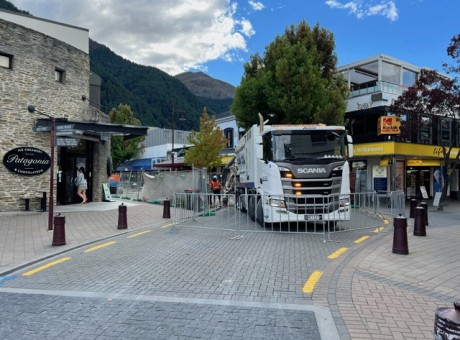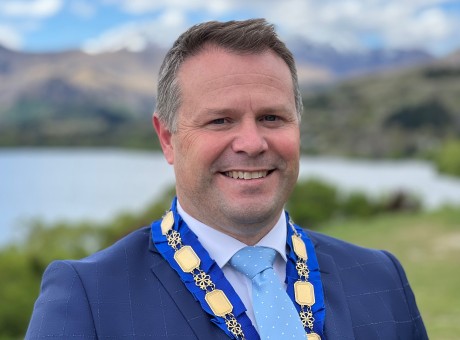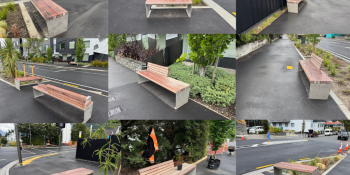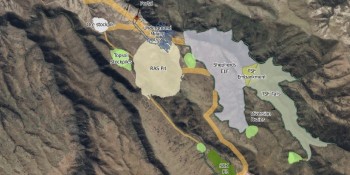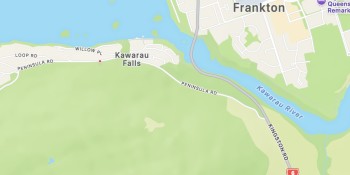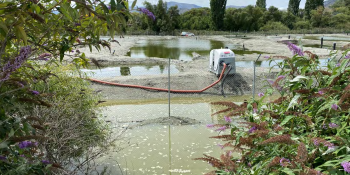Southern Lens election special - Sampsa Kiuru, Green Party
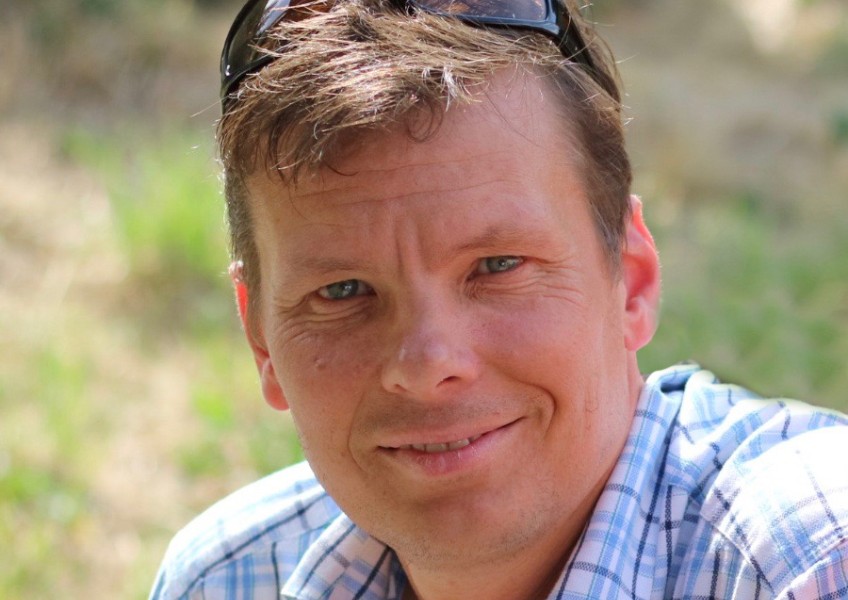
As part of our Southern Lens election special we've invited the candidates for the Waitaki electorate to answer questions on some key local issues for Wanaka and Cromwell in less than 1000 words. This is from Sampsa Kiuru of the Green Party.
What key issues do Wanaka and Cromwell face and what's your action to remedy them?
It is in New Zealand’s best interests that rural communities are resilient and good places to live. The Green’s would ensure that rural towns enjoy the same quality of public services as their urban counterparts. Both Wanaka and Cromwell are in danger of suburban sprawl. Our policy is to update Urban Design Protocols to provide guidance for medium density housing types with shared green space for quality living environments, allowing people to have less need for cars. We also advocate strong regional spatial planning to ensure fringe developments protect significant natural areas and food production land, and are sited with potential public transport routes in mind.
Wanaka’s tourism sector has been hit hard by Covid 19. With the Greens ‘Jobs For Nature’ fund we will continue to create jobs eradicating pests including wilding pines, upgrading tracks, huts and other tourism infrastructure. We will encourage low-impact eco-tourism and recreation and limit visitor numbers at popular sites to protect them and the visitor experience. We do not support a new airport at Tarras. We are keen to make our rural roads safer and continue to build on the cycleway networks. The work we do now needs to ensure we can live up to our 100% Pure NZ brand.
Cromwell, between two tourist hotspots, is well-placed to showcase its character and provide essential industry and horticulture facilities. Lake water quality and siltration are key issues for Green Party attention, with riparian planting plans to control runoff , and providing funding for lakeweed research underway.
This district has seen babies born on the side of the road en route to birth units. What's to be done to improve maternity services for parents and babies?
Green Party policy states that quality free healthcare is the basis of a good life. Service integration between primary care providers, hospitals and specialists should enable people to have seamless interactions across the health system. We advocate that maternity hubs should not be built in isolation as they need supportive infrastructure alongside such as a guaranteed 24hr GP service and St John Emergency services.
Green MP, Julie Anne Genter, recently announced a $300 million increase in spending on maternity services across NZ. The Greens strongly believe rural women should not be more at risk than their urban counterparts.
With New Zealand's borders closed, what can be done to help address seasonal worker shortages, and support the horticulture and viticulture industries?
Our migrant workers perform a vital service to our economy and we have a duty of care to ensure they are paid and housed well, and treated as fairly as kiwi workers. But it is not a sustainable solution to bring in workers from other countries to ensure the success of our primary industries and Covid 19 has shown the vulnerability of that solution.
However using backpacker labour and RSE workers should benefit both them and us. For example Training opportunities for RSE workers who may be able to take skills home could benefit our Pacific neighbours. The Greens would investigate and resolve the barriers to New Zealanders taking these jobs. Farmers, horticulturalists and viticulturists will need support to structure their businesses to welcome kiwi workers. Organic methods, regenerative farming, good housing and transport options, strong communities are the Green vision for NZ.
Housing affordability and availability - what's the answer?
In the past 3 years, the Healthy Homes standard has impoved essential elements in rental accommodation but this is not enough. Green party Co-leader Marama Davidson announced our ‘Homes For All’ policy saying “The well-being of people, whanau and communities starts with warm, dry, affordable homes.”
The Greens will expand the Kainga Ora building programme to deliver enough new affordable rental properties to clear the waiting list in 5 years and expand progressive home ownership options like ‘rent to own’. We will create a fairer deal by introducing a WOF for rental homes and reviewing financial assistance for renters. We will overhaul the building code and expand subsidies for energy efficiency retrofit. We will end homelessness by building on support programmes that already work.
We love to swim, fish and get out on the boat - we need water to irrigate - how do we best protect and utilise our freshwater resources?
Water is a taonga which must be protected. This government has introduced the strongest ever water reforms. For the first time, rules for water will prioritise ecosystem baselines and Maori cultural values. These changes mean water quality will improve over time, restoring our lakes, rivers and wetlands so people can swim safely, and freshwater species can thrive.
We will create a fair system for water allocation, improve urban water quality and supply by funding green infrastructure. We will support farmers to reduce run-off and the need for irrigation. This will include on-farm storage and distribution.
How do we support local economies to diversify and innovate, and ensure they don't become 'dormitory' towns to Queenstown's development?
Our country is at a crossroads. The decisions we make now will determine what kind of planet we pass on to our grandchildren who are also going to be confronted by climate change, the housing crisis, poverty and the cost of our 3 waters infrastructure rebuild. We need to put every dollar into solving these long term challenges.
The Greens ‘Clean Economy’ Policy is full of good ideas across all sectors to make sure this happens. For example, in Agriculture we will model environmentally sustainable farming with Pamu-Landcorp.
In Clean Energy, we will equip all suitable public housing with solar panels and batteries.
We will provide sustainable business leadership training and create thousands of jobs in green energy, including working with business to replace fossil fuel equipment. We will encourage the high-tech, low carbon economy including software, gaming and precision agriculture. We will support the local wood-processing sector to add value to kiwi timber.
In a Green future, industrial scale tourism is replaced by regional tourism with each locality playing to its strengths.
A Green future envisages vibrant regions and regional towns that are well-resourced and great places to live. Covid 19 has shown that we can do things differently – lets never return to the old normal but build a better one that is low carbon, more equitable and more enjoyable.
Think Ahead and Act Now.






